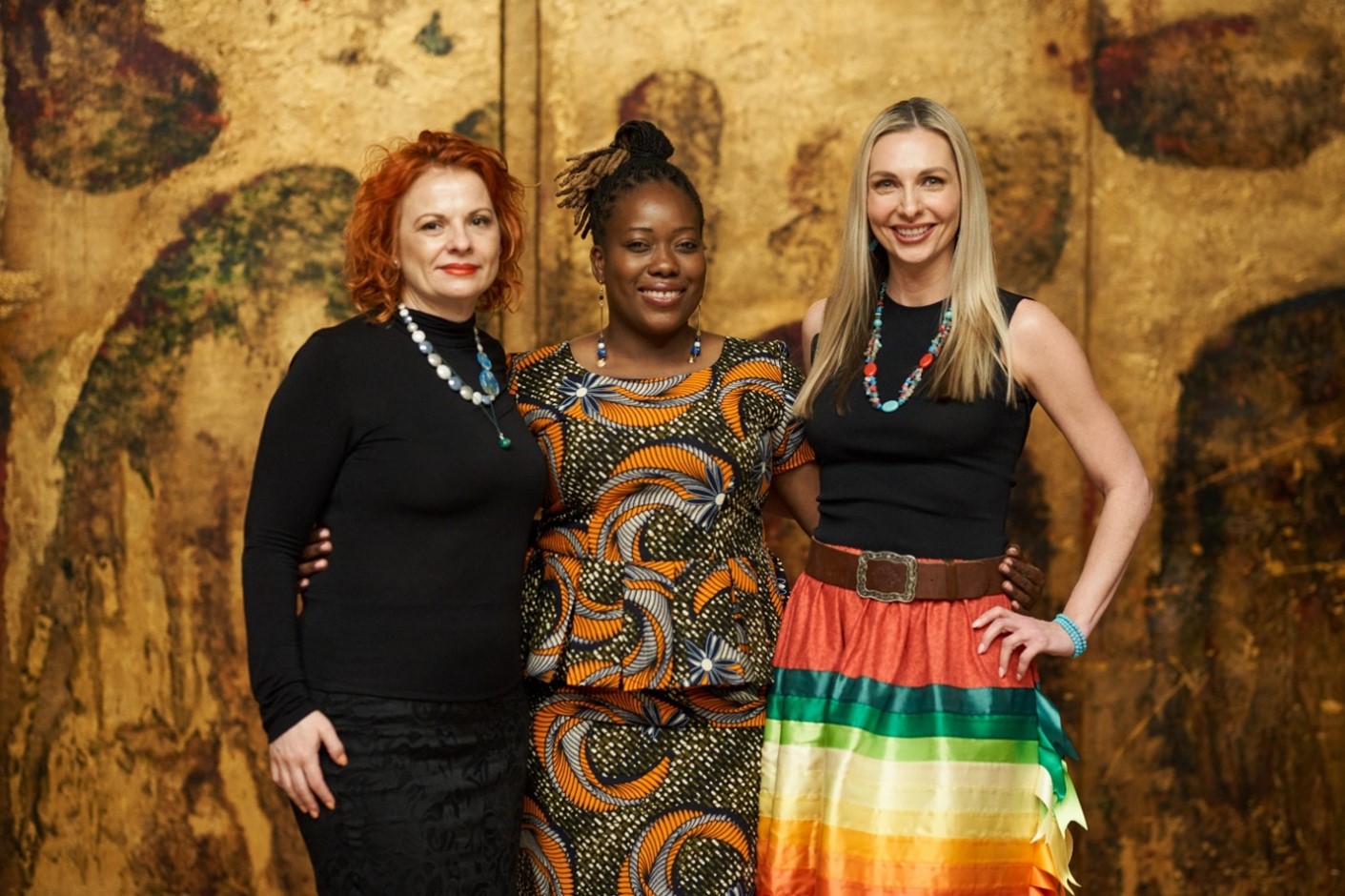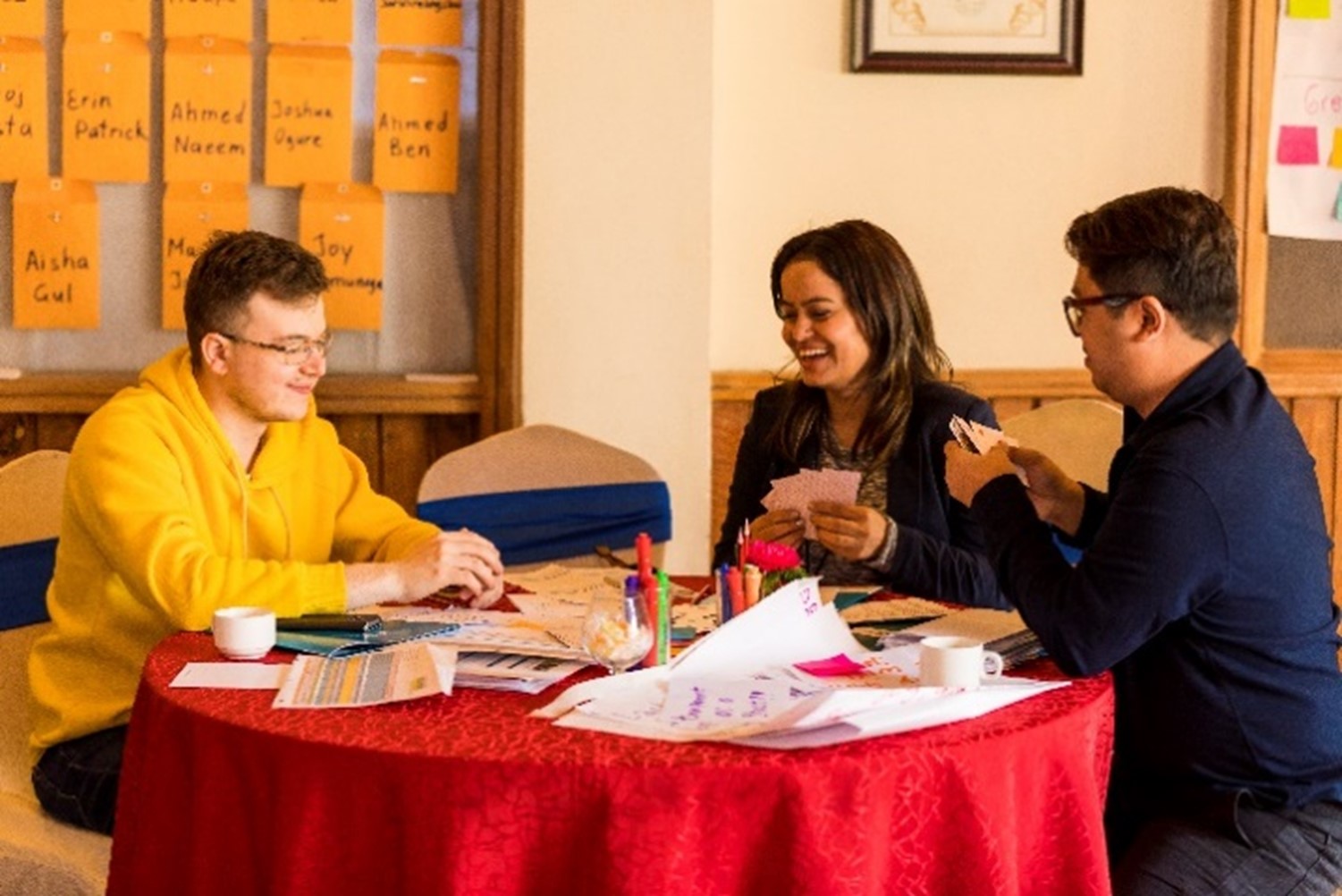Strengthening alumni engagement and reducing leadership fatigue: Three fundamental care practices

Like other fellowship networks, IREX’s Community Solutions Program (CSP) faces the challenge of burnout and discouragement amongst alumni. The exhaustion and challenges experienced by CSP alumni in their work can limit their effectiveness or cause them to quit their mission to drive transformational change in their communities. To address this issue, CSP cultivates unique care practices within its alumni engagement approach to re-inspire and re-invigorate alumni through difficult stretches of their leadership journey. These care practices, explored below, are especially effective in improving alumni engagement and continuing success both in-person and online.
Recently, CSP, a U.S. Department of State-funded leadership development initiative that empowers community leaders between the ages of 26 and 39 with tools and resources to collaborate and tackle complex community issues, was recognized for its care initiative in a case study conducted by the University of San Diego’s Joan B. Kroc Institute for Peace and Justice (IPJ). Kroc IPJ praised the initiative as an “innovation that is well-suited to peacebuilding practice communities,” and noted that while many similar communities struggle, CSP has sustained its alumni engagement by cultivating unique strategies in its community of practice infrastructure.
Creating a community of care
The efficacy of CSP’s care practices is demonstrated, in part, by how highly engaged CSP alumni are in program activities throughout the program life cycle. Hundreds of alumni volunteer to read applications for prospective CSP fellows, mentor active fellows, apply for grants to enhance each other’s projects, and establish alumni associations to expand impact in their regions. This is especially encouraging since CSP, which has been in operation for more than a decade, has more than 800 alumni from over 90 countries, with up to 50% of alumni actively participating in alumni activities as of 2022.
Additionally, 80% of alumni reported that they have received valuable resources from the global network of CSP alumni, and 72% shared that they have used the alumni network to collaborate professionally. Hadijah Nankanja, a 2011 alumna from CSP’s inaugural cohort who has remained active in the alumni community said, “The greatest personal benefit of participating in CSP was the lifetime relationships and network gained as alumni.... meeting and forming strong partnerships with people from all over the world [has] been instrumental in my personal and professional growth.”
"In the face of immense obstacles, the CSP alumni community serves as a source of strength and encouragement for civil society leaders prone to exhaustion and feelings of isolation. CSP’s alumni efforts are designed to build relationships, foster a culture of care and collaboration, and contribute to scalable community-based leadership." CSP Director Les Miles
The continued engagement, coupled with the following care practices, support CSP alumni in achieving their goals, finding innovative solutions to their challenges, and reaching their full potential.
Three care practices to improve alumni engagement
1. Create a shared set of guiding principles
CSP alumni commit to a set of guiding principles that govern how members of the CSP community conduct themselves and treat one another. These guiding principles include exercising care and consideration, practicing integrity, engaging in lifelong learning, and taking action. These principles create a shared ethical framework that all CSP fellows, alumni, staff, and stakeholders agree to uphold in their interactions and as representatives of the program. This mutual respect fosters a culture of care and trust that is infused throughout CSP’s alumni programming.
2. Foster trust from the beginning
For the CSP alumni network, engagement requires trust. The Kroc case study revealed that the high trust environment established during the CSP fellowship leads to a high rate of alumni engagement, which in turn improves the outcomes of alumni programming.
This trust between alumni is established when they are fellows. Before they arrive in the United States for their four-month practicum in various cities, fellows are placed in purposefully designed peer-organized discussion (POD) groups with the other fellows in their host city. Many fellows experience challenges while in the U.S., whether it is difficulty completing a practicum in a different language and culture, missing loved ones back home, or even acclimating to the weather in their host communities. In these groups, fellows become each other’s first line of support as they progress through their fellowship experience.
POD groups offer a safe space for the fellows to directly support and uplift one another through the highs and lows of their fellowship. At the end of their time in the U.S., the fellows in these groups have built natural, trusting relationships with one another and are skilled in the peer-led support that is at the heart of CSP’s alumni activities. When fellows return to their home country, the POD groups are expanded into regional groups of alumni who meet virtually to discuss their leadership journeys and any challenges they are facing in their community work.
3. Establish alumni-led Communities of Practice

The CSP team has found that the best approach to support CSP alumni through difficult stretches of their career is to connect them to like-minded CSP alumni who have experience navigating similar challenges in their communities. This ethic of mutual support is at the heart of CSP’s Communities of Practice (COPs), centering alumni-led discussion groups where alumni come together to explore specific leadership challenges. Alumni set the agenda, then offer support and encouragement based on their own experience and expertise. The CSP team created a framework for alumni to make contributions without regulating how the COP is implemented by training alumni to actively listen, respond productively to the challenges shared in the COPs, and create clear leadership roles and facilitation responsibilities within the COP.
The Kroc Institute’s case study illustrated that people will only engage and contribute to the life of a community if they believe that others in that community will do the same. By inculcating care practices throughout the CSP experience, IREX creates a culture where CSP alumni trust that the effort and engagement they contribute as alumni will be reciprocated by other alumni, their host organization staff, and the CSP team. These practices ensure that the CSP community network remains a haven for all CSP alumni throughout their careers, one they can rely on in times of crisis, and steward for others.